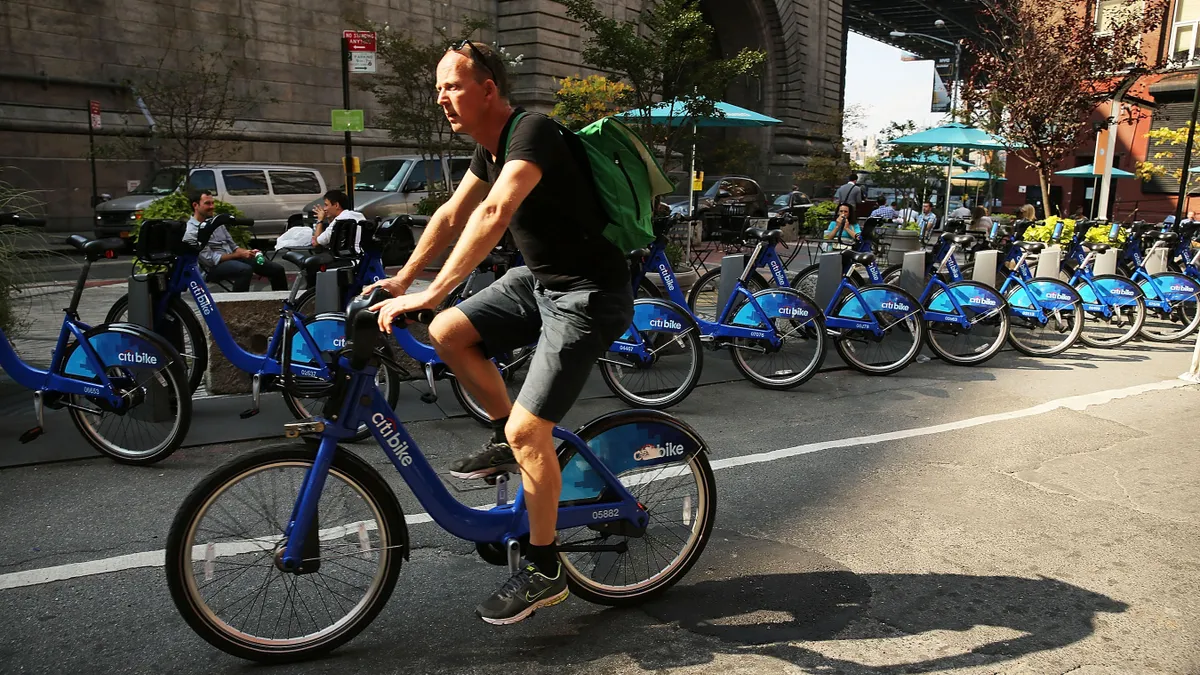Dive Brief:
- Lyft CEO David Risher outlined plans to restructure and refocus its micromobility business in a Wednesday note published online.
- Lyft will eliminate dockless bikes and scooters, which are considered less efficient to manage, to concentrate on docked bikes and e-bikes, scooters and electric docking stations, he said. Risher said the company will discontinue its dockless scooters in Washington, D.C., and is “seeking alternatives” to its dockless bikes and scooters in Denver.
- “One thing has become abundantly clear: Bikes and scooters are core to our purpose and make our company stronger,” Risher said in a statement.
Dive Insight:
Just a year ago, shortly after Risher was appointed CEO, the company appeared to be backing away from the micromobility sector. The Wall Street Journal reported that Lyft could be looking to sell its bike and scooter operations or find a strategic partner that would invest in it. The company noted in a July 23, 2023, statement that it had “received strong inbound interest in our bikes and scooters business.”
What changed in little more than a year? Ridership on shared bikes and scooters started to recover from pandemic lows. The industry began to consolidate with Bird acquiring Spin and coming out of bankruptcy, Lime growing and Superpedestrian exiting the U.S. market.
“Lyft is looking at all of this and saying, we have a tremendous brand and a tremendous distribution system,” said Bill Klehm, CEO of eBliss Global, an e-mobility company. “Why in the world wouldn't they just go for it and expand it?”
Focusing on docked bikes and scooters reduces labor costs, enables better management of the vehicle fleets and improves relationships with cities that have to cope with scooters left on sidewalks, Klehm explained. “The total enterprise cost of running a system is significantly reduced with a dock system than it is with an undocked system,” he said.
The company said in a Sept. 4 filing with the U.S. Securities and Exchange Commission that it is restructuring its micromobility division, which will be renamed as Lyft Urban Solutions. The restructuring will include layoffs of approximately 1% of the company’s employees and will incur $34 million to $46 million in related costs.
Where Lyft doesn’t operate its own bikes and scooters, it has partnered with Bird and Spin to enable users to rent their vehicles through the Lyft app. “As bikes and scooters become an even bigger part of the global transportation landscape, we will supercharge our business, cities, and riders’ journeys,” Risher said.












